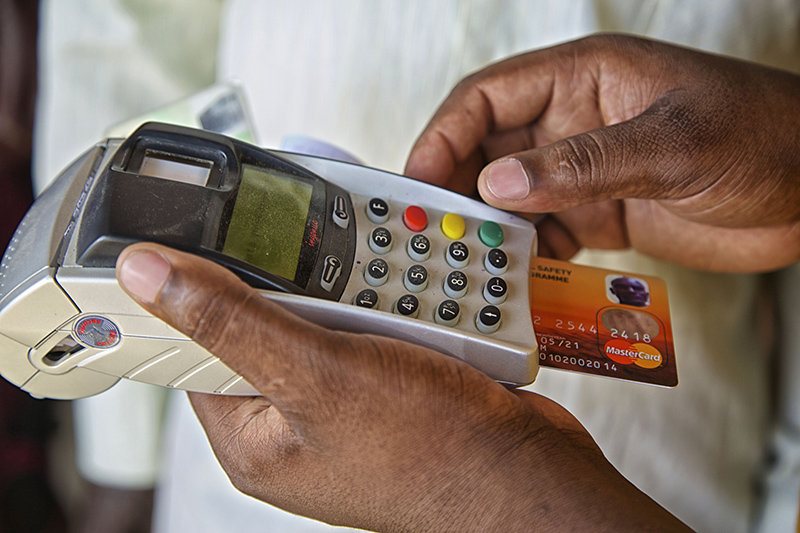 Use of ATM cards to access cashUK Secretary of State for Department for International Development, Penny Mordaunt, lauded HSNP's drought emergency scale up mechanism that is able to quickly delivery cash transfers to households reported to be in severe or extreme drought status. Vegetation Cover Index (VCI) are generated by the satelite to showcase the status of a given location. HSNP drought emergency cash transfer payments are triggered when a given sub-County is either under severe or extreme drought status. See examples of previous VCI reports labelled Early Warning Bulletin
Use of ATM cards to access cashUK Secretary of State for Department for International Development, Penny Mordaunt, lauded HSNP's drought emergency scale up mechanism that is able to quickly delivery cash transfers to households reported to be in severe or extreme drought status. Vegetation Cover Index (VCI) are generated by the satelite to showcase the status of a given location. HSNP drought emergency cash transfer payments are triggered when a given sub-County is either under severe or extreme drought status. See examples of previous VCI reports labelled Early Warning Bulletin
Article by NewStatesMan
17 JANUARY 2018
There are some areas of public policy that sit firmly in that uncomfortable corner of the ‘popularity vs evidence’ matrix. That corner is the one where the ‘highest level of academic evidence of effectiveness’ and the ‘lowest level of public understanding and therefore support’ intersect. Direct cash transfers is the policy that is firmly in international development’s ‘naughty’ corner.
We all know what Yes, Minister’s Sir Humphrey meant when he says: “that is a very brave decision, Minister.” Yet every new Secretary of State at the Department for International Development has an uncomfortable conversation early in their tenure with evidence-based officials who want to test the bravery of their new political master.
So why has Penny Mordaunt used her first interview with the Financial Times to announce an expansion of direct cash transfers?
Well partly, because wonks read the FT. Indeed, on one level, international development is extremely complex. On another, it’s relatively simple. Poor people have problems that they can’t solve themselves because - you guested it - they don’t have enough money. But just giving money away is easily portrayed as an undeserved hand out. That’s why some element of conditionality makes political sense, even if the evidence suggests that unconditional cash transfers are the most effective of all.
Getting a decent reception for this early policy move in the Telegraph has come partly as a consequence of focusing on refugees – where the need is more visible and less contestable – and party as a consequence of using the language of British ‘national interest’ in a series of articles in that same paper. The latest, describes Britain as a development superpower and when it comes to conditional cash transfer policy, it is indeed the space race that has helped us blaze the trail.
In northern Kenya, the Hunger Safety Net Programme provides a social safety net to people living in a semi-arid region near the equator, using direct cash transfers. And emergency payments are triggered by analysis of satellite imagery of the impact of the weather on crops and vegetation because those changes preemptively mirror changes in food prices. It’s conditional not on what people do but on how the environment in which they live changes, in real time. The system preempts droughts, it prevents famines and it has been running for over a decade now.
We are rightly proud of our welfare state but perhaps sometimes take it for granted. Yet this is a policy that helps other countries to help their own citizens, in their own way.
The programme is now only part funded by the UK taxpayer, in partnership with the Kenyan taxpayer, and Dfid is transitioning to finish its support entirely. This is sustainable development in action and it couldn’t have happened without Britain’s global leadership. Andrew Mitchell, the first Conservative Secretary of State at Dfid, was fond of saying that “these are not Labour achievements or Conservative achievements, but rather they are British achievements.” When it comes to Kenya’s Hunger Safety Net Programme, he certainly has a point.
Click HSNP drought emergency scale ups for more information
